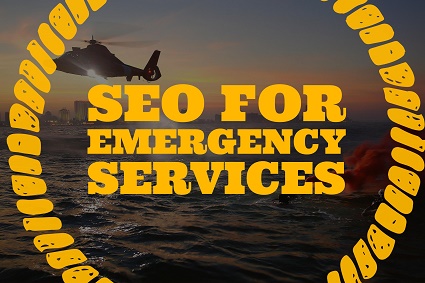Your cart is currently empty!

SEO for Emergency Medical Services
SEO, or search engine optimization, helps people find your website when they need the goods and services you have to offer. You must produce content that answers the questions your prospective clients and customers have at all the stages on their path to purchase, and make it easy for new patients to feel comfortable visiting your practice as well as your website. But what about SEO for medical emergency services? Isn’t that a different kettle of fish?
Emergency medical services path to purchase
A healthcare consumer thinking of elective surgery will usually Google the problem. They narrow in on possible solutions as they learn more about the procedure, and then compare possible service providers before contacting a doctor or hospital.
They are statistically likely to visit 10 or more different sources of information before taking action.
Emergency medical services are different, though. You’re the next step from calling 911: a solution to a problem which your clients perceive as an emergency. Your calls are coming from people who don’t feel like shopping around.
They may not have a choice among services, or they may not think about the choices they have. Instead, they want an immediate solution to their problem. They may automatically choose the top result on the search results page, especially if they’re using mobile devices.
You need to accomplish a few things:
- Be #1. Being #1 on Google is not as straightforward as it used to be. Most of the time it’s no longer worth obsessing about. However, it’s worth improving your rank as much as possible, especially if you offer urgent care and you have competitors.
- Be responsive. Make sure that your patients or clients can find what they need in urgent situations on mobile devices, too. Display your phone number shows up at the top of the screen on mobile devices as well as on your desktop.
- Be accessible. If you get a lot of urgent calls, make sure that your website makes it easy to make those calls. We put a call-out box like, “For immediate assistance, call…” in a prominent place on websites in these cases. Click to call buttons are also very handy.
Do you have competitors?
In some cases, you really don’t have competitors. If you’re the only ambulance service in town, you’ll get the call.
People needing an urgent appointment with a dentist or therapist are most likely to call their own dentist or therapist — though they will search for a new provider if they don’t already have one. Someone needing an urgent care clinic, a pharmacy with quick turn-around, or a salon that can handle a hair emergency will certainly use search.
If you don’t have competitors for your emergency services, make sure that the right web pages show up for the searches people make when they need your services. Optimize for local search and make sure that your contact information (website URL, email address, physical address, phone number, etc.) is current and up to date.
People under stress can be easily frustrated. The top local ambulance service in the town where I live currently has on their homepage a workshop announcement and this useful post: “December, 2015, Congratulations to our 2015 Central EMS Employee of the Year.” No phone number. You can scroll down to see a weather widget and a blog post from 18 months ago, but the people who need ambulance services don’t want to take time to click around in search of essential information.
I’m guessing that people who reach this web page feel quite frustrated. The only other company listed at the top of the page for me is in a neighboring state, but I’d choose them if it were possible. They’re making the effort to give their clients a good experience. So should you, even if you have no competitors. Things to avoid if you offer emergency medical services:
- Auto-play videos
- A lack of contact information — put it in the upper right hand corner
- Complicated navigation
- Animation, ads, and anything else that distracts from your contact information
One man’s emergency…
If your urgent clients should be calling 911, we usually put a message to that effect on the website. But people don’t all agree on what constitutes an emergency. If you know that your patients or clients feel that their needs are urgent and 911 is not an option, you should make certain that their searches find you.
Does your website show up for “skincare emergencies”, “cat health emergencies”, or “emotional crisis”? If your patients use these phrases, then you should make sure that you have a page that provides solutions, including your emergency number and the hours when someone will answer.
You know when your patients or clients feel they have an emergency, even though 911 won’t help. Use this knowledge to ensure that your website will show up for them when they feel that urgency.
Use tools like Google Trends and the Google Search Console to identify the search terms people use when they urgently need your services, and use SEO best practices to make sure you have landing pages for those people. If true emergency services are your bread and butter, make sure that your home page provides the information people need immediately.
by
Tags:

Leave a Reply